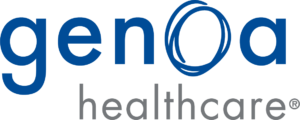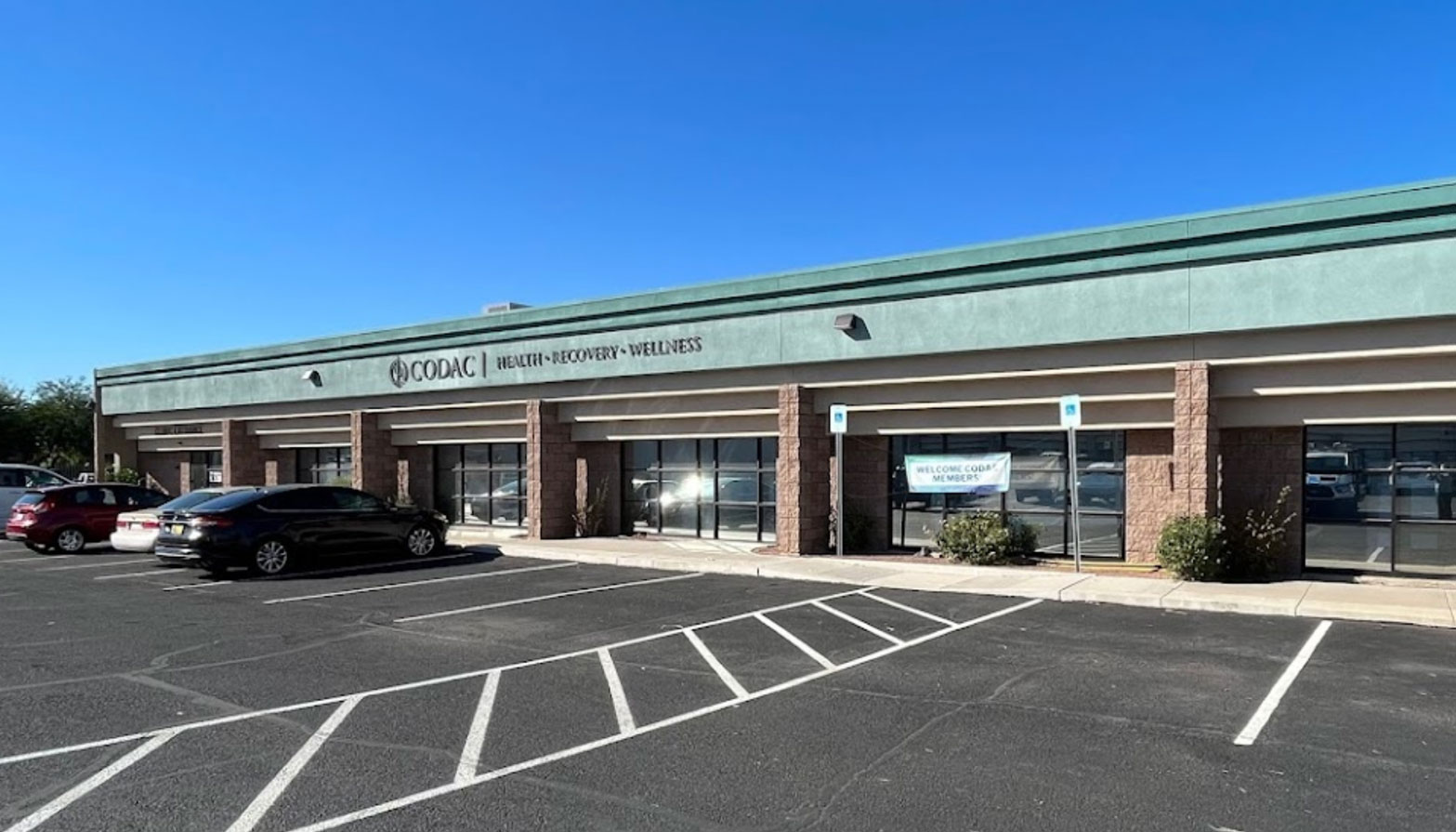Primary Care & Wellness

CODAC's Primary Care Services
At CODAC, we know that when both mental and physical health are all in one “healthcare home,” our members achieve better results and a better quality of life. By focusing on both, you receive the most complete care available, all in one easy location.
Along with your mental health services, CODAC’s Primary Care Providers treat common illnesses and injuries and provide physical exams, screenings and wellness checkups.
We will also help you prevent, identify and monitor chronic conditions such as diabetes and high blood pressure, and make referrals to other specialists if necessary. Everything from day-to-day sickness and annual checkups, to vaccinations and standard lab work is available.
A better choice for your overall health:
- One-stop location for all your health care needs
- Early discovery and prevention of physical or mental health issues
- Treatment plans customized for you and coordinated with your whole treatment team
See Our Primary Care Providers for
Common illnesses and injuries
Physical exams and screenings
Close monitoring of chronic conditions like diabetes and high blood pressure
Wellness check-ups and vaccinations
Standard lab work available on-site
On-site pharmacy assistance
Health Screenings
Learn About Important Preventative Health Screenings
Breast Cancer Screening: Mammogram
How is a Mammogram Performed?
You’ll stand in front of a special X-ray machine. A technologist will place your breast on a plastic plate. Another plate will firmly press your breast down. The plates will flatten the breast, holding it still while the X-ray is being taken. You’ll feel some pressure. The steps are repeated for different views of each breast. The tech will check the X-rays to make sure the pictures do not need to be redone.
Keep in mind that the tech cannot tell you the results of your mammogram. Each woman’s mammogram may look a little different because all breasts are a little different.
Tips for Getting a Mammogram
- Schedule: Try not to schedule it the week before you get your period or during your period. Your breasts may be tender or swollen.
- Day of: Don’t wear deodorant, perfume, or powder. These products can show up as white spots on the X-ray.
- Clothing: You will need to undress from your waist up. Dress comfortably.
What are the Risk Factors for Breast Cancer?
Breast cancer is a disease in which cells in the breast grow out of control. There are different kinds of breast cancer. The kind of breast cancer depends on which cells in the breast turn into cancer.
Studies have shown that your risk for breast cancer is due to a combination of factors. The main factors that influence your risk include being a woman and getting older. Most breast cancers are found in women who are 50 years old or older.
Some women will get breast cancer even without any other risk factors that they know of. Having a risk factor does not mean you will get the disease, and not all risk factors have the same effect. Most women have some risk factors, but most women do not get breast cancer. Here are some risk factors (CDC).
- Not being physically active
- Getting older (40+, ask your doctor)
- Family history of breast or ovarian cancer
- Being overweight after menopause
- Drinking alcohol
- Taking hormones (some forms of hormone replacement therapy, certain birth control pills)
How to Schedule a Mammogram?
Contact your Primary Care Provider (PCP) or call CODAC to schedule a PCP appointment to receive a referral for a mammogram.
Cervical Cancer Screening: Pap Smear
How is a Pap Smear Done?
During an appointment with a Gynecologist or a Primary Care Provider, the provider will insert speculum into the vagina to gently spread the walls of the vagina apart so they can see the cervix. Using a swab or small brush, the provider will lightly swab the cervix for a sample which is sent to a lab to look for precancerous or abnormal cell growth. An additional HPV test uses the same sample to look for HPV DNA strains that put one at greater risk for developing cervical cancer. During this test the provider may also feel around the outside of your abdomen for any abnormalities.
Tips for Getting a Pap Smear
- Schedule: Try not to schedule this test for a day when you will be on your period.
- Do not use any creams, medicines, spermicidal foam or douches in the two days before your Pap. These may hide or wash away cells that may be concerning.
- Try to avoid having intercourse for two days before your Pap. If you do have sex within this time period, just let your medical provider know.
What are the Risk Factors for Cervical Cancer?
According to the Centers for Disease Control (CDC), the majority of cervical cancers are caused by the Human Papillomavirus (HPV), a common virus passed through sex. This is why it is often recommended to get the HPV vaccine and be tested for HPV. Smoking and family history are also risk factors.
How to Schedule a Cervical Cancer Screening (Pap Smear)
Call your Primary Care Provider or Gynecologist to schedule an annual “well woman exam” to include a Pap smear. If you do not have a PCP, call CODAC to enroll with our convenient providers.
Colorectal Cancer Screening
- Colonoscopy: A simple and safe procedure (using anesthesia) where a doctor uses a long tube with a light and camera to detect polyps in the colon. Colonoscopies are recommended every 5-10 years depending on whether polyps were previously found or if you have other risk factors. Current standards recommend starting to receive colonoscopies at age 45 if you’re at average risk for colon cancer.
- Stool DNA test (Cologuard, sDNA-FIT): This tests for abnormal DNA and blood in the stool (poop). This test can be performed at home by collecting a bowel movement sample and sending it to the lab for analysis in a special kit. This test may be recommended every three years (according to ACS guidelines).
- FIT or iFOBT, FOBT: This tests for blood in the stool (poop) by swabbing a stool sample, and sending the swab to a lab. This test may be recommended every year.
Tips for Getting a Colonoscopy
- Prepare: Read all the specific instructions from your healthcare provider. There are specific instructions on what and when you can eat, and what and when you can drink.
- Meal plan five days ahead. You cannot have any solid food the day before the procedure; clear liquids only.
- Coordinate your transportation for who will take you to and from the appointment. You will not be able to drive after your procedure.
What are the Risk Factors for Colorectal Cancer?
About 1 in 23 men and 1 in 25 women are at risk for getting colorectal cancer in their lifetime. There are factors that can increase your chance of getting a disease such as colorectal cancer. Some of these can be changed, like what you eat. Some of these can’t be changed, like having a family history. Knowing your risk helps you to take control of your health and the steps you can take to lower risk.
Do what you can to reduce the risks for colorectal cancer you CAN control. If you are concerned about your risks, talk to your doctor to make a plan for how you can reduce your risks. One of the most important things you can do to lower your risk for colorectal cancer is get screened. Your doctor can recommend a screening test that’s right for you. Here are some of the potential risk factors for colorectal cancer:
- Getting older (45+, ask your doctor)
- Family history of polyps or colorectal cancer
- Not being physically active
- Diet high in red meats
- Drinking alcohol
- Having an inflammatory bowel disease (IBD) or Type 2 diabetes
How to Schedule a Colorectal Cancer Screening?
Contact your Primary Care Provider (PCP) or call CODAC to schedule a PCP appointment to receive a referral for a the colorectal cancer screening that is appropriate for you.
Source: https://www.ccalliance.org/pdfs/resources/Colorectal%20Cancer%20Risks.pdf

I want to thank my CODAC PCP for bringing me in and having my lab work done.
It showed dangerously high sugar levels. It’s been two months and my sugar level went from 500 to 243.
- CODAC Primary Care Member
On-site Pharmacy
The Genoa Healthcare pharmacy, located onsite at our clinics, is open and ready to serve you with free delivery and on-site pick-up – even if you’re meeting with your doctor by phone or video.
The Genoa Pharmacy can:
- Fills all your medications from any doctor (not just behavioral health).
- Mail all medications (at no extra cost)
- Offer free pre-filled pill organizers to help you stay on track.
- Help transfer prescriptions from other pharmacies to Genoa
Contact the pharmacy team to learn more today!
Contact the Pharmacy Team
CODAC at Cobblestone Court
1075 E. Ft. Lowell Rd, Tucson, AZ 85712
Monday – Friday 8 a.m. – 5 p.m. (Closed for lunch from 12 – 1 p.m.)
CODAC at Speedway
4585 E. Speedway Blvd, Building 2, Tucson, AZ 85712
Monday – Friday 8 a.m. – 5 p.m. (Closed for lunch from 12 – 1 p.m.)
Frequently Ask Questions
When should I see a CODAC Primary Care Provider versus going to Urgent Care or the Emergency Room?
Your CODAC Primary Care Provider is available to help you with medical concerns like allergies, asthma, cold and flu symptoms, ear infections, fever, painful urination, rash, sinus infection, strains and sprains, vomiting or diarrhea (not severe), regular physicals and check ups, well-women exams, follow-up on abnormal lab tests, vaccinations, and prevention and treatment of chronic medical conditions.
If you have a sudden, severe change in your health or are badly hurt, you may need to go to the Emergency Room. Call 911 or go to the Emergency Room if you have chest pain or discomfort, symptoms of a stroke (like weakness in one side of the body, slurred speech or blurry vision), are having a hard time breathing, have severe or uncontrollable bleeding, or for any other serious or life-threatening condition.
Urgent Care may be appropriate for you if you need care for minor illnesses and symptoms like (fever, sore throat, rash, UTIs, flu, sinus infections, minor injuries) when your primary care provider is not available (like on evenings and weekends).
Does CODAC offer same-day Primary Care appointments?
Yes, it is often possible to see a CODAC Primary Care Provider for a same-day appointment Monday through Friday, between 8 a.m. and 5 p.m.
Call 520-327-4505 to see if a same-day appointment may be available for you.
Can I get my vaccines at CODAC?
Yes. CODAC works closely with Genoa Pharmacy to provide vaccinations to members. At CODAC at Cobblestone Court and CODAC at Speedway, the Genoa pharmacy is on-site and carries most major vaccines.
For members who receive primary care at CODAC at 380, arrangements can be made for you to receive vaccines through Genoa as well.










